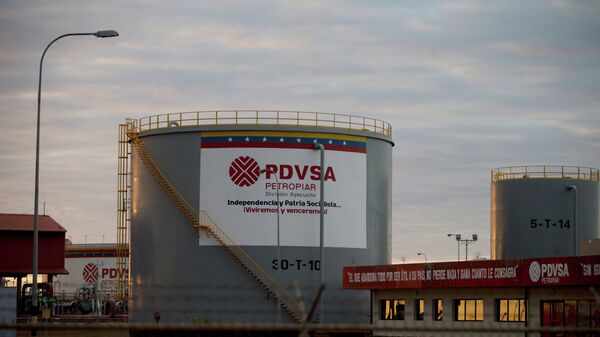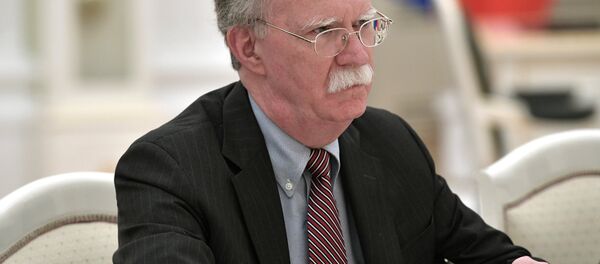Houston-based Citgo Petroleum Corporation, a subsidiary of Petroleos de Venezuela SA (PDVSA), is seeking to obtain a 1.2 billion dollar loan to fund its daily operations in the US, Bloomberg reports.
According to a slide deck obtained by Bloomberg, Citgo Petroleum has already hired the independent investment bank Houlihan Lokey to find lenders as “US sanctions cripple” Citgo’s parent company PDVSA, which is barred from getting Citgo dividends.
READ MORE: Sanctions Against Venezuelan Oil Sector to Hit US in First Place – Think Tank
Representatives for Houlihan Lokey, Citgo and Venezuela’s Finance Ministry declined to comment on the matter.
Earlier, Citgo announced that it had approved a new board of directors, appointed by the Venezuelan opposition, and launched the process of searching for a new company president.
In late February, media reports said that Citgo had officially severed ties with PDVSA amid US sanctions.
In a separate development, the Treasury Department's Office of Foreign Assets Control (OFAC) announced on Friday that the United States has extended the March 11 deadline for investors to cut ties with PDVSA until May 10.
READ MORE: Beijing Warns US Unilateral Anti-Venezuela Sanctions to Only Aggravate Situation
The provisions allow for limited transactions with PDVSA before US sanctions on the Venezuelan oil giant come into full effect. Companies that continue to do business with PDVSA after the deadline risk facing restrictive measures within the US.
On 28 January, the United States blocked $7 billion in PDVSA assets in its jurisdiction and imposed a ban on deals with the entity.
US Treasury Secretary Steven Mnuchin said at the time that by blocking PDVSA assets, the United States was taking care of this company in the interests of the Venezuelan people.
Venezuela’s President Nicolas Maduro responded by saying that the restrictions were tantamount to an illegal seizure of the country's sovereign assets.
READ MORE: Fewer and Fewer States Support US Venezuela Strategy — Ex Ecuadorean FM
Earlier this week, Maduro accused the Venezuelan opposition and US authorities of being eager to start a war for the Latin American country’s natural resources.
“No one should let themselves be fooled! The Venezuelan opposition and the US government do not want to help the country. On the contrary, they want to seize our natural resources. They want to unleash an ‘oil war’ to invade our homeland and rule here! But they will fail!" Maduro tweeted.
The United States immediately recognized Guaido, with many of its allies following suit. Russia, China, Mexico, Turkey and a number of other countries have stated that they recognise Maduro as Venezuela’s only legitimate president.


